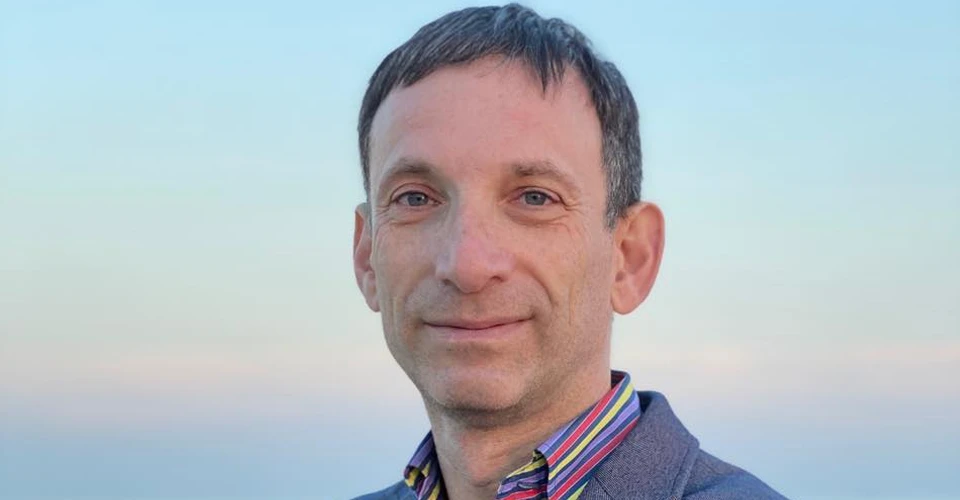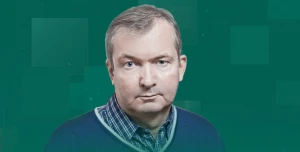
Lavrov is waving the nuclear baton again. Vitaliy Portnykov's column
During a speech at a Moscow conference on nuclear nonproliferation, Russian Foreign Minister Sergei Lavrov threatened the United States, Britain and France with the possibility of a direct military clash over their support for Ukraine
Lavrov's statement is a new addition to the array of nuclear threats from the Russian political leadership. Previously, discussions centered more on Russia's preparedness to deploy nuclear weapons in the war with Ukraine if the actions of Ukraine's defense forces jeopardized national security and the very survival of the Russian Federation. Notably, the Kremlin has not elaborated on where Putin's so-called "red lines" actually lie.
However, over time, when it became apparent that these threats from Putin himself and his closest associates did not bother the West or Ukraine itself, Russian officials decided to move to a new level of threats.
Now we are no longer talking about Russia, as a nuclear power, using nuclear weapons against a non-nuclear country, but about the possibility of a direct clash between one nuclear power, the Russian Federation, and three other nuclear powers, the United States, the United Kingdom, and France. In other words, it is practically about Armageddon.
To be precise, what the Russian foreign minister is essentially threatening the West with can be summed up in one word: Armageddon. This is because, in the eyes of the foreign minister, it is the nuclear-armed nations that are most vigorously aiding Ukraine. Consequently, there can be no dialogue with these countries regarding non-proliferation and arms reduction in general. Russia sees nuclear weapons as necessary to maintain the threat of their use, thereby keeping alive the specter of a nuclear conflict between Russia and Western nations.
We should not think that Sergei Lavrov has lost his mind. After all, the Russian political leadership is well aware that a nuclear war involving the Russian Federation on the one hand and NATO member states on the other would leave no stone unturned in the Russian Federation itself. But Moscow is confident that this level of threats can force the civilized world to eventually abandon intensive assistance to Ukraine and thus create favorable conditions for Russia to occupy and annex the territory of a neighboring state and force Ukraine to surrender on the terms put forward by Russian dictator Putin.
Lavrov's reaction can also be considered to some extent a reaction of despair.
The Kremlin had hoped to the last that the United States would refuse to provide Ukraine with aid for 2024, that this aid would remain hostage to the US election campaign. The fact that the Speaker of the House of Representatives Mike Johnson put forward the issue of aid to Ukraine for consideration by the House and that it would soon be approved by the Senate and US President Joseph Biden was not only an unpleasant surprise for Russia, but also prompted the need to revise plans for further military action on the Russian-Ukrainian front.
It became obvious that it was too early for Putin and his closest associates, even his alcohol-loving friend Dmitry Medvedev, to open the stolen champagne. And, of course, in this situation, Russia is trying to scare the West so as to exclude the possibility of intensifying assistance to Ukraine in the coming months and years of the Russian-Ukrainian war.
Sergey Lavrov's statement can also be perceived as a clear attack on Paris after French President Emmanuel Macron emphasized that he does not rule out the possibility that NATO troops will appear on the territory of Ukraine, albeit not for combat purposes. For the Russian political and military leadership, such an appearance is indeed a nightmare, because in fact, Moscow has not made a single decision that would indicate Vladimir Putin's desire to move to a direct military clash with NATO member states. Such a decision has not been made primarily because Putin himself is well aware, after several years of the Russian-Ukrainian war, that in a war with NATO states without the use of nuclear weapons, the Russian army is doomed to a shameful defeat.
After all, we can see the current state of the Russian armed forces, even without engaging modern Western weaponry. One can only imagine the challenges Russian soldiers and generals would face when confronted with the latest technologies wielded by NATO member states' armies.
We'll tell you what - a quick and painful death, which is exactly what the Russian leader would like to prevent. He needs his own army to wage war against the former Soviet republics, and possibly to attack his own population if it does not at some point perceive Putin's rule as the only possible option for Russia's further development.
So the only thing left in this situation for Sergei Lavrov, who always feels Putin's mood and has direct instructions on his speeches from the Russian presidential administration, is to intimidate the West and raise the level of threats to the highest level. After all, what could look more terrifying in the information space than the promise of Armageddon, a war in which the Russian Federation, the United States, the United Kingdom, and France would use nuclear weapons and thus call into question the survival of tens or hundreds of millions of people?
Lavrov knows what he is talking about. However, it is unlikely that his threats can really frighten the West and force them to refuse further assistance to Ukraine. After all, such a reaction to this aid, with an increase in the level of threats and nuclear sabotage, is predictable when we talk about how the Russian Federation of Putin, Lavrov and other troublemakers will perceive this aid.
About the author. Vitaliy Portnykov, journalist, winner of the Shevchenko National Prize of Ukraine.
The editors do not always share the opinions expressed by the blog authors.
- News













































